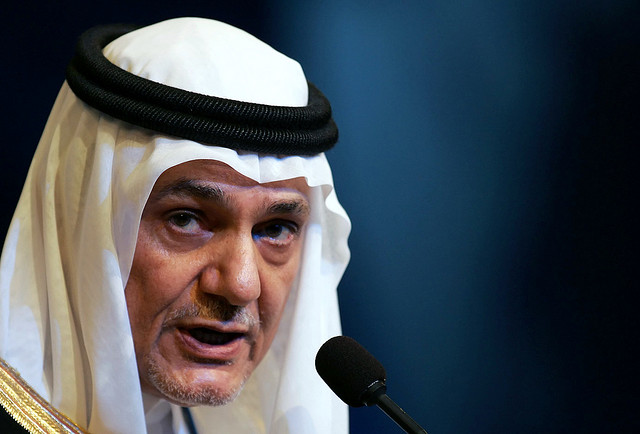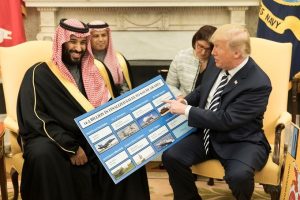by Jim Lobe
via IPS News
As hopeful, albeit vague, statements about talks in Geneva between Iran and the great powers continued to issue from the Swiss city Tuesday, foes of détente between Washington and Tehran maintained their own high tempo of work.
The government of Israeli Prime Minister Binyamin Netanyahu and its supporters in the powerful Israel lobby, which exerts its greatest influence through Congress, appear to be working overtime to persuade the administration of President Barack Obama not to ease economic sanctions on Iran until their maximalist demands are met.
On the eve of the two-day talks between the Islamic Republic and the P5+1 (United States, Britain, France, Russia and China plus Germany), a bipartisan group of ten key U.S. senators published a letter they sent to President Barack Obama urging Washington’s delegation to stake out positions in Geneva – specifically, that Iran end all uranium enrichment on its own soil – which most Iran specialists believe are certain to kill prospects for a deal.
While insisting that they “support your efforts to explore a diplomatic opening,” the senators wrote Obama that they were “prepared to move forward with new sanctions to increase pressure” on Tehran unless it takes “concrete …actions” to dismantle its nuclear programme, beginning with the suspension of all enrichment.
If Iran complies, they said, they would suspend action on pending sanctions legislation that otherwise could be taken up as early as next week.
The letter reflected the position of Netanyahu, who has been campaigning tirelessly for several weeks, particularly since Iran’s new president, Hassan Rouhani, made a highly successful visit last month to New York for the U.N. General Assembly, against any agreement between the P5+1 and Tehran that would not require Iran to totally abandon its nuclear programme, including enrichment capabilities.
On Tuesday, Netanyahu publicly released what veteran Israel-watchers called an unprecedented “Security Cabinet Statement” detailing alleged violations by Iran of U.N. Security Council resolutions and warning the P5+1 against any “premature” easing of economic sanctions, which last year halved the value of Iran’s currency.
“It would be an historic mistake not to take full advantage of the sanctions, by making concessions before ensuring the dismantling of Iran’s nuclear weapons program,” the statement asserted.
It then laid out conditions, including the cessation of all nuclear enrichment and the removal from Iran’s territory of all stockpiles of enriched uranium, that would result in Israel’s “embrace [of] a genuine diplomatic solution”.
A possible deal
The wave of attacks comes amidst growing speculation that this week’s talks, scheduled to end Wednesday, may provide an unprecedented opening for a deal.
For the first time, Washington appears willing to seriously address a proposed end-state that will meet a long-standing Iranian demand to maintain an enrichment programme in exchange for accepting tight constraints and a strict inspection regime to ensure against any “break-out capacity” that would enable Tehran to produce a nuclear weapon on short notice.
Until recently, U.S. policy had essentially adopted Israel’s position that Iran could not be trusted with an enrichment programme on its own soil. Lately, however, the administration has hinted that while it will not formally recognise Iran’s “right to enrich” under the Non-Proliferation Treaty, it could live with such a limited programme as part of a comprehensive deal.
The deal includes Tehran’s disposing of its existing stockpiles of enriched uranium, dismantling its capacity to enrich at higher levels, and addressing concerns about its heavy-water facility at Arak, which could begin producing plutonium when it opens some time next year.
As Iran verifiably implements such a deal, according to U.S. officials, the administration and its P5+1 partners would lift sanctions.
While no one expects a comprehensive agreement to be concluded during this week’s talks, the apparently positive reception by U.S. and western delegations of Tuesday’s presentation by Iranian Foreign Minister Javad Zarif of what Tehran is willing to do under such an accord suggests that confidence-building measures (CBMs) and proportionate sanctions relief may quickly follow.
That prospect worries Israel and the Gulf states – particularly Saudi Arabia, the United Arab Emirates and Bahrain – who not only oppose Iran’s retaining any enrichment capabilities but also fear that a nuclear deal between Iran and the West that results in lifting sanctions will inevitably alter the strategic balance throughout the region, facilitating Iran’s re-emergence as a major power at their expense.
“They’re doing everything they can to make sure it doesn’t happen because they fear that any outcome based on these negotiations is going to be a net negative for them compared to the status quo,” according to Trita Parsi, NIAC’s president.
But such a view is short-sighted, he told IPS, “because it doesn’t take into account how this game-changer can also open up new opportunities” by creating a new security structure that can help reduce sectarian conflicts and restore some stability to a region in turmoil.
Ire from Saudi Arabia
Even Saudi Arabia, while less vocal and powerful than Israel in U.S. domestic politics, took its own shots at the negotiations and possible rapprochement between Washington and Tehran.
In a remarkable appearance at the annual leadership convention of the National Iranian American Council (NIAC) Tuesday, Riyadh’s former ambassador to London and Washington, Prince Turki bin Faisal al Saud, warned, “Rouhani will have to deliver before others take him seriously,” and bemoaned the fact that the Gulf Co-operation Council (GCC), of which it is the leading member, had been excluded from the P5+1 talks.
While he insisted that the Riyadh “favours engagement with Iran,” he also accused Tehran of seeking regional “hegemony” and intervening in Arab countries. Its alleged direct military involvement in the “killing” in Syria, he stressed, should disqualify it from participating in talks in Geneva to end that country’s civil war.
Rouhani, he said, “has to shed Khomeini’s interventionist legacy and, like his own discourse, adopt sensible policies.”
Saudi Arabia’s Prince Turki bin Faisal al Saud






Goodness, the comment[s] from Saudi Arabia on disqualifying Iran from talks, (the Syrian I presume), is the same thing as the “Kettle calling the Pot black”. All things considered, if this turns out to be a winner, the present talks, then that would in effect, relegate both Saudi Arabia and Israel to a position of a lower position then they now have.The problem I see with Israeli leader Netanyahoo, is he is a warmonger, less so with the GCC, but then, they have their own problems, as to the population makeup. Face it, the potential for peace in the M.E., shows that everybody is getting tired of perpetual war, which is destroying countries instead of building them. I might add too, that Israel is but a small state, which to let dictate what the rest of the world should do and act, should be a non-starter. In fact, Israel should clean up the mess they have created in their own backyard, stay out of other peoples business, especially in the U.S. as far as driving a wedge in the negotiations. I think the worlds attention should also be trained upon the Israeli WMDs next.
Poor Saudis, by hinting that they should be included in the G5+1 negotiations with Iran they actually think they have a chance (why is that?). Also, since when did the G5+1 take any Arab country seriously?